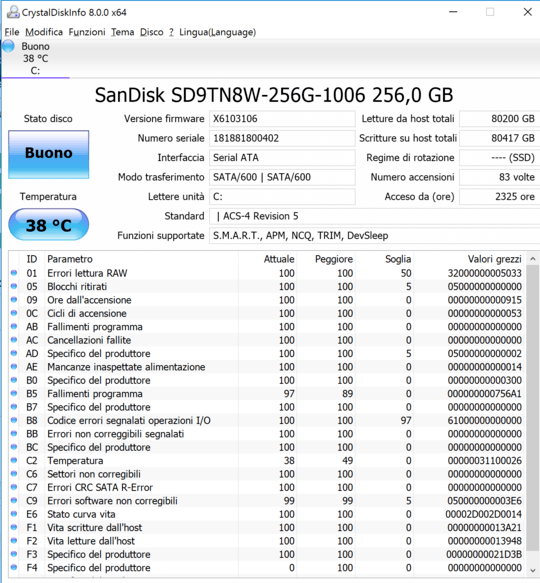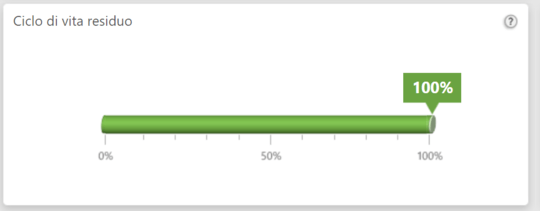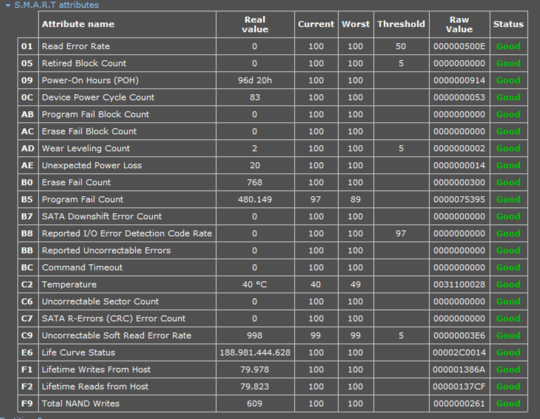I just wish to draw attention to the attribute of
Uncorrectable Soft Read Error Rate whose value is 998, and is defined as:
Number of soft read errors that cannot be fixed on-the-fly and
requires deep recovery provided by RAISE.
R.A.I.S.E. is a complementary technology to Error Correcting Code (ECC).
This means that 998 bits on the disk are bad, but the data was recovered thanks
to Error Correcting Code techniques.
Another suspicious attribute is Program Fail Count whose value is 480.149.
I don't know exactly what this means, perhaps it has been normalized,
but this is defined as:
The number of times when write to a flash memory failed. The write process is technically called "programming the flash memory", hence the attribute name. When the flash memory is worn out, it cannot be written to any longer and becomes read-only. The Raw value shows the actual number of failures.
There is also Erase Fail Count, value 768, defined as:
S.M.A.R.T. parameter indicates a number of flash erase command failures.
I think therefore that even if the other values don't make sense, this SSD
seems to have been hard used and might be on the verge of failure.
I can't recommend buying it, unless for light use.
It's in my opinion not trustworthy, as there are
too many warning signs.



Host reads and writes are pretty much meaningless, only writes that get through to the flash matter. 609GB of total NAND writes is a meaningful number. – David Schwartz – 2018-12-04T19:16:29.577
These numbers don’t add up either way, because the unit of the raw value of attributes F1 and F2 is supposed to be “LBAs”, ie. 512-byte sectors. Which means 0x1386a LBAs = 40,948,736 bytes = 39 MiB. – Daniel B – 2018-12-04T19:37:26.993
I'll try writing 100MB on the disk and see what happens to that number. I just noticed I am supposed to have written 200GB between those two screenshots – alfred – 2018-12-04T19:47:19.280
CrystalDiskInfo reads now 82.3TB Read and 82.7TB Write. There is something wrong with the way S.M.A.R.T reports the data, or there is some loop (not credible) – alfred – 2018-12-05T09:30:27.617